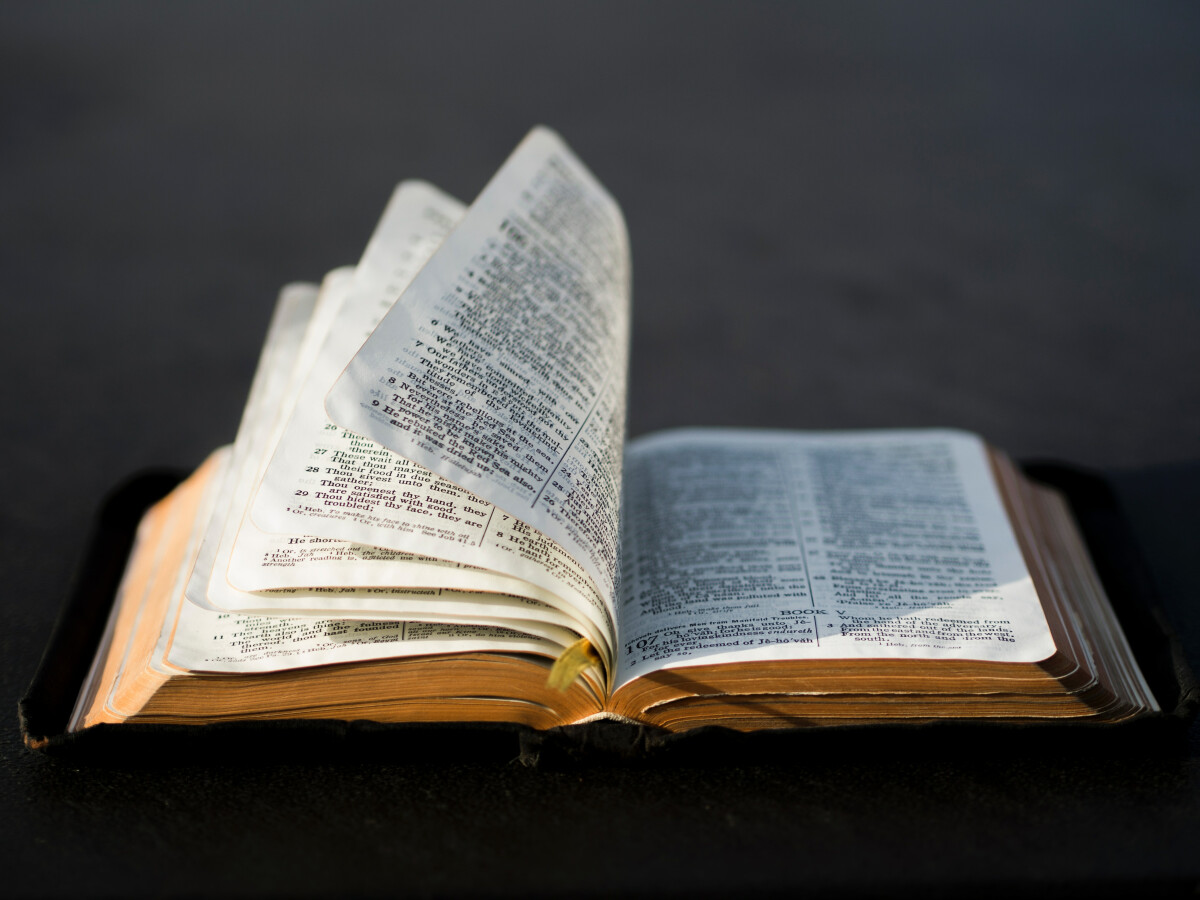April 08, 2022 | Articles by Gabriel Bouch

How Do I Read the Bible?
If you’re just getting started with the Bible, it can feel a little overwhelming. Should I just start on page 1? Does it matter what translation I use? Are there any resources that can help me understand what I’m reading?
In this article, I’m going to outline a few tips that will help you get started. Let’s begin with the basics.
What is the Bible?
The Bible is a collection of ancient documents written by many different authors over a period of more than a thousand years. These documents are divided into two groups, the Old Testament and the New Testament. The Old Testament documents were all written before Jesus was born and they tell the story of God’s plan to bless the world through the people of Israel. The New Testament documents were written by followers of Jesus and they tell the story of how God’s plan in the Old Testament finally came to fruition through Jesus Christ.
Most people find it helpful to begin by reading the story of Jesus in the New Testament books called the Gospels (Matthew, Mark, Luke, and John), and then to return to the Old Testament books after becoming familiar with the story of Jesus and the church. The shortest of the four Gospels is the Gospel according to Mark, so this is a great place to begin.
What translation should I choose?
There are many good English translations of the Bible including the New International Version (NIV), the English Standard Version (ESV), the New Living Translation (NLT), and the New Revised Standard Version (NRSV). Each of these modern translations are based on very accurate ancient copies of the original documents, which were written in Hebrew, Aramaic, and Greek. English translations differ from one another primarily because of the differences in translation philosophy adopted by the scholars creating the translation. For example, the English Standard Version (ESV) and the New American Standard Bible (NASB) typically follow more of a word-for-word translation methodology (when possible). This approach often gives a better sense of the structure of the underlying languages but sometimes results in an awkward rendering into English. The New International Version (NIV) embraces a thought-for-thought approach, which typically results in a relatively smooth rendering into English. The New Living Translation (NLT) is a very smooth rendering into English, but takes more liberty in expressing biblical concepts with different words. Each of these translations are good choices for an English Bible.
How do I understand the Bible?
For many people, there is a lot of mystery around the Bible. “If the Bible is an important religious text,” we might think to ourselves, “then maybe I should read it in a totally different way than any other writing.”
What you will quickly discover is that it’s not the structure of the Bible that has caused it to have such a significant impact on so many people. It’s the message of the Bible that makes it so powerful.
There is nothing special about the languages, grammar, writing styles, or literary genres employed in the Bible. To understand what the Bible says, we can begin by reading its contents like we would any other writings in those genres.
What do I do when I don’t understand what I’m reading?
Because the biblical documents were written in cultural contexts that differ from our own in significant ways, we may sometimes encounter passages that confuse us. There are a lot of great tools that can help us better understand what we’re reading.
For starters, you might check out apps like Read Scripture or BibleProject.
In addition, there are several really helpful study Bibles that contain introductions to each of the books of the Bible as well as background information on nearly every passage in the Bible. Two that I recommend are the NIV Biblical Theology Study Bible and the ESV Study Bible.
What are some good ways to study the Bible?
A great place to begin is to choose a book of the New Testament to read through slowly and thoughtfully. Take a moment to pray before you read. And then, as you read, ask yourself questions like the following.
- What is the primary point of this passage?
- What would this passage have meant to the original audience?
- What can I learn from this passage that is relevant to my own life and circumstances?
- Is there something that God might be saying to me through this passage?
Write down your thoughts as you go.
A second way to study the Bible is to read through a book of the Bible with a relevant theme in mind. For example, you might read through one of the Gospels while keeping in mind the theme of relationships, or overcoming obstacles, or leadership, or purpose, or prayer. Paying attention to a particular theme as you read will often help you pay attention to parts of the text that you might otherwise overlook.
Reading the Bible has had a profound impact on my life, and I’m confident this practice can make a big difference in your life, too.
For a more detailed introduction to the Bible, check out our ebook, Introduction to the Bible.


